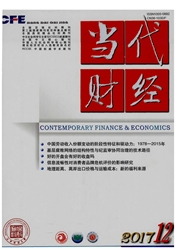

 中文摘要:
中文摘要:
代际收入流动性反映父代收入对子代收入的影响程度,是衡量机会公平的重要指标。研究结果显示,我国不同所有制部门的代际收入流动性存在显著差别。在党政机关、事业单位和国有企业等体制内部门工作的父代对子代收入的影响最大,其次为私营企业、外资企业和自我雇佣者等体制外部门,而来自集体经济部门的父代对子代收入的影响最小。子代个人特征差异对体制外部门和集体经济部门的子代收入差距的贡献超过65%,而对体制内部门与其他两个部门间子代收入差距的贡献只有不到50%。同时,代际收入流动性的程度差别和个人特征对收入差距的贡献在子代收入分布的不同位置上有不同表现。
 英文摘要:
英文摘要:
Intergenerational income mobility can reflect the influence of the parent income on the income of their offspring, so it is an important indicator in measuring opportunity fairness. The results of this study show that the intergenerational income mobility is significantly different in China's dif- ferent ownership sections. The parents working in Party and government offices, public institutions, SOEs and other sectors within the system have biggest impact on the income of their offspring, fol- lowed by those working in the private enterprises, foreign-funded enterprises, self-employed and other sectors outside of the system; while those working in the collective economic sectors have the least impact on their offspring. The contribution of the individual characteristic differences of the offspring to the offspring income gap between the sectors outside of the system and the collective economic sectors is more than 65%, while to the offspring income gap between the sectors within the system and the two other sectors is only less than 50%. Meanwhile, the contribution of the degree difference and the individual characteristics of the intergenerational ineome mobility to the income gap has dif- ferent expressions at different positions of the offspring income distribution.
 同期刊论文项目
同期刊论文项目
 同项目期刊论文
同项目期刊论文
 期刊信息
期刊信息
